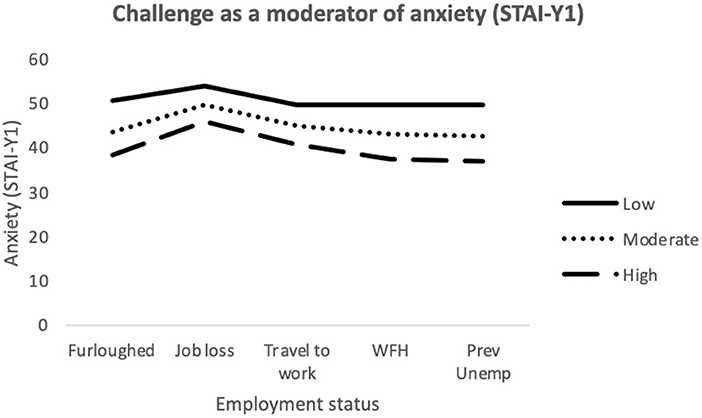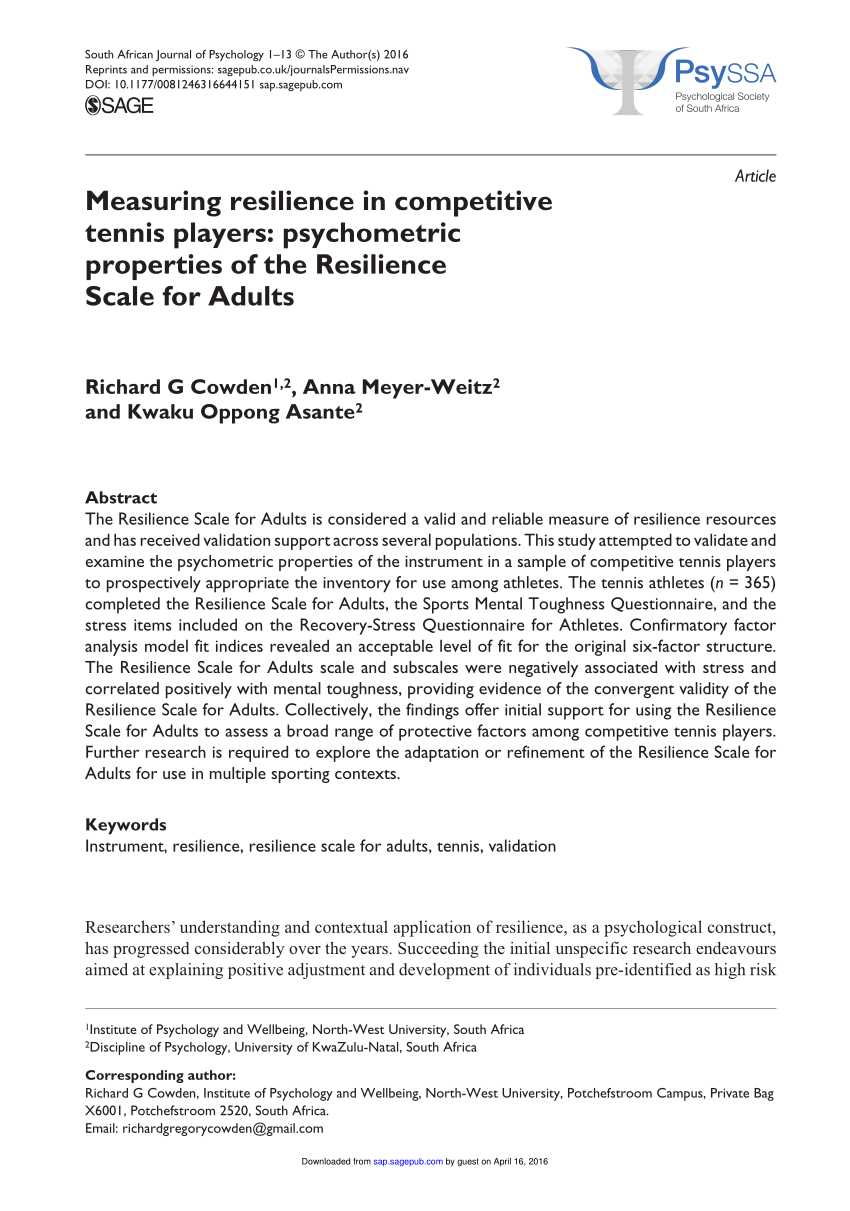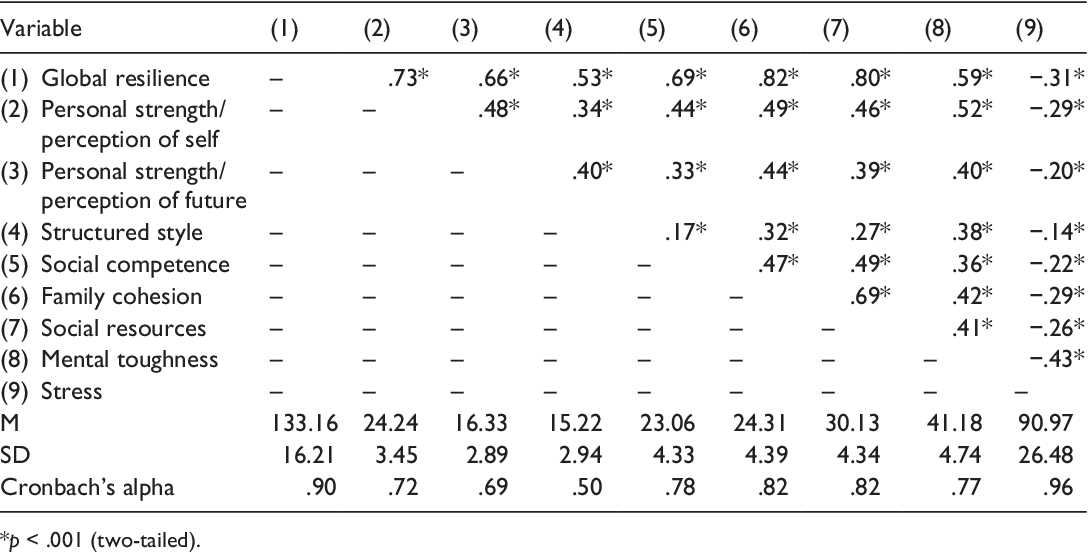
In the world of competitive tennis, mental toughness is a characteristic that sets apart the winners from the rest. It is the ability to stay focused, motivated, and resilient in the face of challenges and pressure. Tennis players must be able to maintain a high level of performance despite the stress and demands of the game.
Research has shown that mental toughness in tennis is closely related to resilience and stress management. Resilience, the ability to bounce back from setbacks, is crucial in a sport where even the most skilled players face defeat. The capacity to adapt and learn from failures is what separates the mentally tough players from the rest.
Furthermore, stress is an inherent part of competitive tennis. The pressure to perform at a high level, the expectations from coaches and spectators, and the intense physical and mental demands of the game can all contribute to stress. However, mentally tough players are able to thrive under these conditions, using stress as a motivator rather than a hindrance.
Understanding the relationship between mental toughness, resilience, and stress in tennis can provide valuable insights for players, coaches, and sports psychologists. By developing strategies to enhance mental toughness and resilience, players can improve their performance and increase their chances of success on the court. Additionally, learning effective stress management techniques can help players maintain a healthy mindset and prevent burnout.
Mental Toughness in Competitive Tennis

Tennis is a sport that requires not only physical skill, but also mental toughness. The ability to stay focused, handle pressure, and bounce back from setbacks is crucial for success in competitive tennis.
Mental toughness in tennis refers to the ability to maintain a positive mindset and perform at a high level, even in the face of adversity. It involves the development of resilience, which is the ability to bounce back from challenges and setbacks.
In the context of competitive tennis, mental toughness is closely related to resilience. Players who are mentally tough are better able to handle the stress and pressure of competition, and are more likely to bounce back quickly from losses or mistakes.
The relationship between mental toughness and resilience in tennis is complex. While mental toughness can contribute to resilience, resilience can also enhance mental toughness. Players who are resilient are better able to maintain a positive mindset and stay focused, even in difficult situations.
Developing mental toughness and resilience in competitive tennis requires practice and training. This can involve techniques such as visualization, positive self-talk, and goal-setting. It also involves building a strong support network, including coaches, teammates, and family members, who can provide encouragement and guidance.
In conclusion, mental toughness is a crucial factor in competitive tennis. It is closely related to resilience, and both are important for success in the sport. Developing mental toughness and resilience requires practice and training, as well as a strong support network. By cultivating these qualities, tennis players can improve their performance and achieve their goals.
Understanding Mental Toughness

Mental toughness is a crucial aspect of competitive tennis. It refers to the ability to maintain a strong and resilient mindset in the face of stress and pressure. Tennis is a mentally demanding sport, requiring players to stay focused and composed even in high-pressure situations.
The concept of mental toughness encompasses various psychological traits and skills, including resilience, determination, and the ability to cope with stress. It involves staying mentally strong and being able to bounce back from setbacks or failures. Mental toughness is not only important for success in tennis but also in life.
Stress is an inherent part of competitive tennis. Players face numerous stressors, such as the pressure to perform well, the fear of failure, and the demands of intense training and competition schedules. Mental toughness helps players manage and cope with these stressors, enabling them to stay calm, focused, and confident.
Resilience is another key component of mental toughness. It is the ability to bounce back from adversity and maintain a positive mindset. Resilient tennis players are able to adapt to challenging situations, learn from their mistakes, and keep striving for improvement.
Mental toughness is not something that comes naturally to everyone. It is a skill that can be developed and improved through practice and training. Techniques such as visualization, positive self-talk, and goal setting can help enhance mental toughness in tennis players.
In conclusion, mental toughness plays a vital role in competitive tennis. It enables players to cope with stress, bounce back from setbacks, and maintain a strong and resilient mindset. Developing mental toughness is an ongoing process that requires practice and training, but it can greatly enhance a player’s performance on and off the tennis court.
Definition and Importance
Toughness is a key attribute in competitive tennis as it directly impacts a player’s ability to handle stress and perform under pressure. Mental toughness refers to the ability to stay focused, confident, and resilient in the face of challenges and adversity. In the context of tennis, it involves maintaining composure during matches, bouncing back from setbacks, and staying mentally strong throughout the ups and downs of a game.
Competitive tennis can be highly stressful, with players facing intense pressure to perform at their best. The ability to handle stress and remain mentally tough is crucial for success in the sport. It allows players to stay calm and composed, make quick decisions, and execute their shots effectively even in high-pressure situations. Mental toughness also helps players maintain a positive attitude and stay motivated, even when facing setbacks or difficult opponents.
Furthermore, mental toughness in tennis is closely related to resilience. Resilience is the ability to bounce back from setbacks and adapt to changing circumstances. In the context of tennis, it involves recovering quickly from mistakes or losses, learning from them, and coming back stronger. Mental toughness and resilience go hand in hand, as they both contribute to a player’s ability to overcome challenges and maintain a strong performance.
In conclusion, mental toughness is a vital attribute in competitive tennis. It allows players to handle stress, stay focused, and perform at their best under pressure. It is closely related to resilience and plays a significant role in a player’s ability to bounce back from setbacks and maintain a strong performance throughout a game or tournament.
Components of Mental Toughness
Mental toughness is a crucial aspect of competitive tennis. It refers to the ability to perform under pressure and maintain focus, despite the stress and challenges that arise during a match. Mental toughness is composed of several key components:
Resilience: Resilience is the ability to bounce back from setbacks and adversity. In tennis, this means being able to recover quickly from a lost point or a mistake and refocus on the next one. Resilience allows players to stay mentally strong and maintain a positive mindset, even when facing difficult situations.
Stress management: Stress is an inevitable part of competitive tennis. Mental toughness involves the ability to manage and cope with stress effectively. This includes staying calm and composed under pressure, controlling emotions, and having strategies in place to handle stressful situations. Players with high levels of mental toughness are able to channel stress into positive energy and use it to their advantage.
Relationships: Mental toughness is not just an individual trait; it is also influenced by the relationships players have with their coaches, teammates, and support system. Strong relationships provide players with emotional support, motivation, and guidance. They can help players develop mental toughness by providing a sense of belonging, trust, and accountability.
Focus and concentration: One of the most important components of mental toughness is the ability to maintain focus and concentration throughout a match. This involves blocking out distractions, staying present in the moment, and having a clear game plan. Players with high levels of mental toughness are able to stay focused on their goals and execute their strategies, even in high-pressure situations.
Self-belief: Mental toughness is closely linked to self-belief and confidence. Believing in one’s abilities and having a strong sense of self-efficacy is essential for maintaining mental toughness in competitive tennis. Players with high levels of self-belief are more likely to push through challenges, take risks, and bounce back from setbacks.
In conclusion, mental toughness in competitive tennis is a multi-faceted concept that involves resilience, stress management, relationships, focus, and self-belief. Developing these components is crucial for athletes to perform at their best and thrive in the face of adversity.
The Relationship with Resilience

In the context of mental toughness in competitive tennis, resilience plays a crucial role in managing stress and maintaining a strong mental game. Resilience refers to the ability to bounce back from setbacks, adversity, and challenges, and it is closely linked to mental toughness.
In the high-pressure environment of competitive tennis, athletes face numerous stressors, including intense matches, demanding training schedules, and the expectations of coaches, teammates, and fans. These stressors can take a toll on an athlete’s mental well-being and performance. However, athletes with high levels of resilience are better equipped to handle these stressors and maintain their mental toughness.
Resilience helps tennis players develop effective coping strategies to deal with stress and adversity. It enables them to stay focused and composed during challenging moments, recover quickly from mistakes or losses, and learn from their experiences. Resilient athletes are more likely to view setbacks as learning opportunities rather than failures, allowing them to bounce back stronger and more determined.
Furthermore, the relationship between resilience and mental toughness is reciprocal. Mental toughness contributes to the development of resilience, as it requires athletes to possess a strong mindset and the ability to persevere in the face of adversity. On the other hand, resilience enhances mental toughness by providing athletes with the resilience to overcome obstacles and maintain their focus and determination.
In conclusion, resilience is a crucial component of mental toughness in competitive tennis. It helps athletes manage stress, bounce back from setbacks, and maintain their focus and determination. The relationship between resilience and mental toughness is intertwined and mutually beneficial, as both qualities contribute to an athlete’s ability to thrive in the challenging environment of competitive tennis.
Resilience in Tennis
Resilience is a crucial trait for success in competitive tennis. The sport of tennis can be mentally and physically demanding, and players who possess resilience are better equipped to handle the stress and challenges that come with it.
Resilience in tennis refers to the ability to bounce back from setbacks, adapt to changing circumstances, and maintain a positive mindset despite the pressures of competition. It involves mental toughness, emotional stability, and the ability to stay focused and motivated even in the face of adversity.
Stress is an inherent part of competitive tennis, and resilient players are able to handle it more effectively. They have the capacity to manage their emotions, stay calm under pressure, and make rational decisions even in high-stakes situations. Resilient players are less likely to be overwhelmed by stress, which can negatively impact their performance.
The relationship between resilience and stress in tennis is complex. While stress can be detrimental to performance, it can also be a catalyst for growth and development. Resilient players are able to view stress as a challenge rather than a threat, and they use it to fuel their motivation and drive to succeed.
In tennis, resilience is closely linked to mental toughness. The ability to stay focused, maintain composure, and persevere through difficult moments is crucial for success on the court. Resilient players are able to bounce back from losses, learn from their mistakes, and continuously improve their game.
Developing resilience in tennis requires practice and training. Coaches and trainers can help players build mental toughness by providing support, teaching coping strategies, and creating a positive and supportive environment. It is also important for players to cultivate self-belief, set realistic goals, and maintain a strong work ethic.
In conclusion, resilience plays a vital role in competitive tennis. It enables players to handle stress, maintain a positive mindset, and bounce back from setbacks. Developing resilience is a continuous process that requires practice, support, and a strong mindset. By cultivating resilience, tennis players can enhance their performance and achieve their goals.
How Mental Toughness Enhances Resilience

In the competitive world of tennis, mental toughness plays a crucial role in an athlete’s ability to bounce back from setbacks and challenges. Resilience, defined as the ability to recover quickly from difficulties, is a key factor in an athlete’s success on the court.
Mental toughness is closely linked to resilience, as it allows tennis players to maintain focus and composure in the face of stress and pressure. It enables them to stay calm and composed, even when facing intense competition or making mistakes.
When faced with a stressful situation, mentally tough tennis players are able to adapt and adjust their strategies, rather than becoming overwhelmed or discouraged. They view challenges as opportunities for growth and learning, rather than obstacles that will hinder their progress.
Mental toughness also enhances resilience by helping tennis players develop effective coping mechanisms for managing stress. They are able to regulate their emotions and maintain a positive mindset, even when facing adversity.
Furthermore, mental toughness strengthens the relationships between tennis players and their coaches, teammates, and support systems. It fosters open communication, trust, and mutual understanding, creating a supportive environment where athletes can thrive.
In conclusion, mental toughness is a crucial aspect of resilience in competitive tennis. It enables players to bounce back from setbacks, manage stress effectively, and maintain positive relationships. By cultivating mental toughness, tennis players can enhance their resilience and ultimately improve their performance on the court.
The Relationship with Stress
Stress is an inevitable part of competitive tennis, and understanding its relationship with mental toughness and resilience is crucial for players aiming to excel in the sport.
Mental toughness is often described as the ability to perform at a high level under pressure and maintain focus and determination despite challenging circumstances. In the context of competitive tennis, mental toughness can play a significant role in how players handle stress and adversity on the court.
Stress can manifest in various ways during a tennis match, including the pressure to perform well, the fear of failure, and the intensity of competition. These stressors can test a player’s mental toughness and resilience, as they must find ways to stay composed and focused amidst the chaos.
Research has shown that individuals with higher levels of mental toughness and resilience are better equipped to handle stress in a competitive tennis environment. They are more likely to view stress as a challenge rather than a threat, allowing them to channel their energy and emotions in a productive manner.
Furthermore, the relationship between stress and mental toughness is reciprocal. While stress can challenge a player’s mental toughness, developing mental toughness can also help individuals better cope with stress. By cultivating resilience and mental strength, players can enhance their ability to manage stress and perform at their best even under difficult circumstances.
It is important for coaches, trainers, and players to recognize the interplay between stress, mental toughness, and resilience in the context of competitive tennis. By understanding and addressing these relationships, individuals can develop strategies and techniques to effectively manage stress and optimize their performance on the court.
| Stress | Toughness | Mental | Relationships | Competitive | Resilience |
|---|
Stress in Competitive Tennis
Competitive tennis can be a mentally challenging sport, requiring players to constantly perform under pressure. The relationships between mental toughness, resilience, and stress in tennis are complex and interconnected.
Stress is a common experience in competitive tennis. Athletes often face high expectations, intense competition, and the pressure to perform at their best. This can lead to increased levels of stress, which can have both physical and psychological effects.
Mental toughness plays a crucial role in how athletes handle stress in tennis. It involves the ability to stay focused, remain confident, and perform well even in the face of adversity. Players with high levels of mental toughness are better equipped to handle the stressors that come with competitive tennis.
Stress in tennis can also impact a player’s resilience. Resilience refers to the ability to bounce back from setbacks and maintain a positive mindset. When faced with stress, resilient players are more likely to adapt, learn from their experiences, and continue to perform at a high level.
Managing stress in competitive tennis is essential for both physical and mental well-being. Strategies such as relaxation techniques, goal setting, and positive self-talk can help athletes cope with stress and enhance their mental toughness. It is important for athletes to develop these skills in order to perform at their best and maintain a healthy mindset in the face of stress.
In conclusion, stress is a common experience in competitive tennis, and its relationship with mental toughness and resilience is significant. By understanding and managing stress, players can enhance their mental toughness and improve their performance on the court.
How Mental Toughness Helps Manage Stress
Mental toughness is a key trait that can help competitive tennis players effectively manage stress. The relationship between mental toughness and resilience plays a significant role in how athletes handle stressors and bounce back from adversity.
When faced with stressful situations on the court, mentally tough players are able to maintain focus and composure. They have the ability to stay calm under pressure, which allows them to make better decisions and execute their shots more effectively.
Mental toughness also helps players develop a positive mindset, which is essential for managing stress. By cultivating a resilient attitude, athletes can view challenges as opportunities for growth rather than threats. This mindset shift allows them to approach stressful situations with confidence and optimism.
Furthermore, mental toughness enables players to regulate their emotions in high-pressure situations. Instead of letting stress overwhelm them, mentally tough athletes are able to stay in control of their emotions and keep a level head. This emotional regulation helps them make rational decisions and prevents them from being consumed by stress.
In addition, mental toughness helps players develop effective coping mechanisms for dealing with stress. They are able to adapt to changing circumstances and find ways to stay motivated and focused, even in the face of adversity. This ability to adapt and find solutions to stressful situations allows them to effectively manage and reduce their stress levels.
In conclusion, mental toughness plays a crucial role in helping competitive tennis players manage stress. By developing resilience and maintaining a positive mindset, athletes can effectively handle stressors and bounce back from adversity. The ability to regulate emotions and develop effective coping mechanisms further enhances their stress management skills. Mental toughness is a valuable trait that can contribute to success on and off the tennis court.
Strategies to Develop Mental Toughness
Mental toughness is crucial for success in competitive tennis. It involves the ability to stay focused, confident, and resilient in the face of challenges and stress. Developing mental toughness requires a combination of strategies that can help players build strong relationships between their mind and body.
1. Set Clear Goals: Setting clear and achievable goals is essential in developing mental toughness. Players should establish short-term and long-term goals that are specific, measurable, attainable, relevant, and time-bound. These goals will provide players with a sense of direction and purpose, helping them stay focused and motivated.
2. Develop a Positive Mindset: Maintaining a positive mindset is crucial in developing mental toughness. Players should train themselves to focus on the positive aspects of their performance and learn from their mistakes rather than dwelling on them. Positive self-talk and visualization techniques can help players stay confident and resilient in high-pressure situations.
3. Practice Resilience: Resilience is a key component of mental toughness. Players should learn to bounce back from setbacks and failures, using them as opportunities for growth and learning. Developing resilience requires players to embrace challenges, stay committed to their goals, and maintain a strong belief in their abilities.
4. Manage Stress: Stress can significantly impact mental toughness. Players should develop effective stress management techniques, such as deep breathing exercises, mindfulness meditation, or engaging in activities outside of tennis to help them relax and recharge. It’s important for players to find healthy ways to cope with stress and maintain a balanced lifestyle.
5. Seek Support: Building mental toughness can be a challenging process, and seeking support from coaches, teammates, or sports psychologists can be beneficial. These individuals can provide guidance, feedback, and encouragement, helping players navigate through difficult times and develop their mental toughness.
6. Embrace Failure: Failure is a natural part of the competitive tennis journey. Players should learn to embrace failure as an opportunity for growth and improvement rather than viewing it as a setback. By reframing failure as a learning experience, players can develop mental toughness and bounce back stronger.
7. Maintain a Healthy Lifestyle: Physical health and mental toughness are closely intertwined. Players should prioritize sleep, nutrition, and exercise to ensure they are in optimal physical condition. A healthy lifestyle can help players manage stress, enhance their focus, and improve their overall mental toughness.
By implementing these strategies, tennis players can develop the mental toughness needed to excel in the sport. Building strong relationships between the mind and body, and learning to stay focused, confident, and resilient, will ultimately contribute to their success on the tennis court.

I am Patrina de Silva, a psychologist and mental health blogger in Sri Lanka. After obtaining psychology degrees from the University of Colombo and Monash University, I returned home to work as a counselor while also starting the popular blog “Pressy but Happy” to provide advice on psychological issues. Over the past decade, my empathetic articles have made my blog a leading mental health resource in the country. In addition to writing, I maintain a private therapy practice, frequently volunteer counseling time, and conduct seminars, driven by my passion for destigmatizing mental illness and educating the public on the mind-body connection. I strive to be an influential voice in my field through my compassionate approach.
